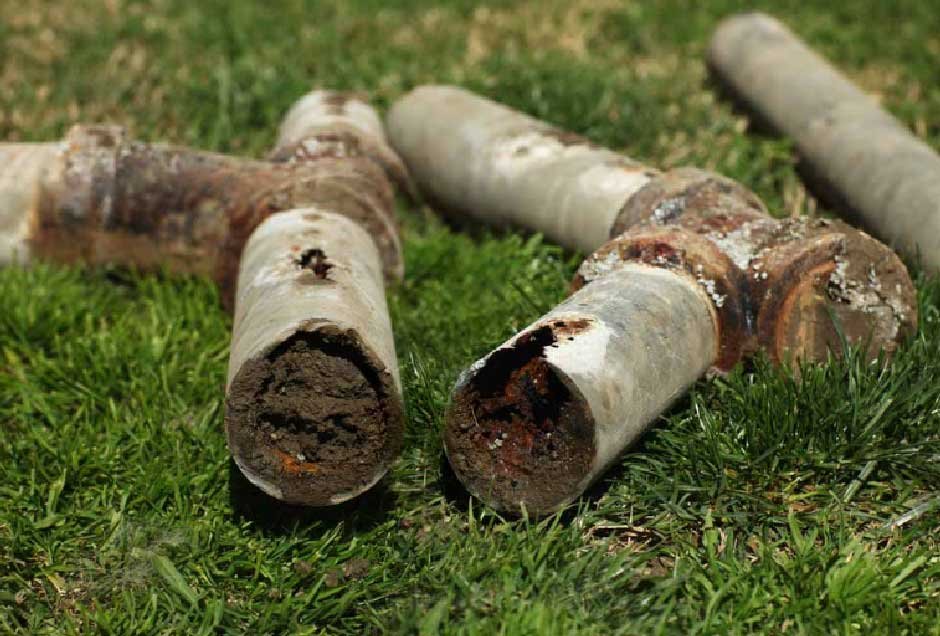Skip to the good bit
TogglePlumbing and heating systems are responsible for providing water and warmth continuously, doing so silently. Yet, corrosion can occur and slowly destroy pipes, potentially leading to failed seals and pipe leaks. Being proactive about preventing corrosion in heating systems can help you avoid expensive damage and ensure that everything in your building works properly. We have explored the causes of corrosion, how to detect problems early, and how to protect pipes from corroding over time.
How Corrosion Attacks Pipes
- Metal pipes react with water, air, or chemicals, building up rust or crusty scale.
- It affects both the water supply and heating system lines, causing pipes to become brittle over time.
- It can lead to restricted flow, leaks, or even pipe bursts if left unattended.
- Regular corrosion protection for water supply systems, as recommended by Plumbing Experts, catches issues before they escalate. If you already have a problem, contact specialists who will help you solve it.
- Ignoring it invites pricey fixes and potential damage to floors or walls.
Shielding Pipes with Smart Treatments
Protecting Pipes with the Latest Methods: Treating pipes against corrosion is a significant improvement. Water systems can be preserved from rust by injecting chemicals that stop rusting. By placing a layer of epoxy, you prevent metal from coming into contact with water. These tricks help prevent corrosion in plumbing and heating systems, reducing the need for major repairs.
Why Corrosion Is a Health Issue
Rusty pipes aren’t just a plumbing headache—they can mess with your health. Corroded lines may contaminate drinking water with metals or germs, posing risks to anyone who uses it. In heating systems, rust can clog boilers or radiators, leading to breakdowns or unsafe conditions. Focusing on corrosion-resistant plumbing ensures that water remains safe and heaters remain reliable, thereby protecting everyone in the building.
Easy Ways to Stay Ahead
Homeowners can take simple steps to prevent corrosion. Flushing water heaters every year removes sediment that fuels rust. Using a water softener in areas with hard water reduces the formation of harmful deposits. For heaters, draining radiators and checking for trapped air helps with corrosion control in heating systems. These small steps add up to healthier pipes.
Some pipes are more resistant to corrosion than others. Old-school galvanized steel rusts fast, especially in older homes. Switching to materials like copper or PEX enhances rust prevention for pipes, as they resist water and heat more effectively. Picking the right pipes from the start saves on repairs and keeps systems running longer.
When Pros Need to Step In
For tough corrosion, professionals have the right gear. Pipe relining adds a protective layer inside pipes, fixing leaks without requiring the removal of floors. If the damage is severe, metal pipe corrosion repair may require replacing sections. Plumbers can also test water quality and suggest adjustments to prevent rust, ensuring proper corrosion control of the heating system is maintained.
The Hidden Costs of Corrosion
Corrosion doesn’t just hurt pipes—it dings your budget and the planet. Leaking pipes, wastewater, spiking bills, and stressing local supplies. In heating systems, rust reduces equipment efficiency, requiring more fuel or power to operate. Corrosion mitigation for water systems saves money and reduces environmental waste, making it a win-win.
Why Regular Checkups Matter
Having pipes checked yearly can prevent corrosion from occurring. Plumbers can spot rust or buildup during routine visits, preventing bigger issues. For heating systems, inspecting boilers and radiators for wear is essential. These checkups help extend the lifespan of pipes, keeping everything efficient and avoiding unexpected breakdowns.
Pitfalls to Watch Out For
Many people make mistakes that accelerate corrosion. Letting small leaks slide or forgetting water heater maintenance allows rust to spread quickly. Using the wrong pipes in areas with acidic water is another blunder. Focusing on preventing pipe corrosion with smart materials and consistent care dodges these traps and keeps systems sturdy.
High-Tech Ways to Fight Rust and Why Prevention Saves Big
- Uses small electrical charges to shield pipes from rust.
- Remove corrosive elements from water, especially useful for older systems prone to corrosion.
- Adds a strong layer of defense to water supply pipes.
- Prevents leaks and failures early, cutting repair costs.
- Maintains clean pipes for better water flow and heating efficiency.
- Helps reduce utility bills by improving system performance.
- Increases property value by avoiding corroded plumbing.
- Ensures pipes stay in good condition for decades with regular maintenance.
When to Bring in Experts
Cloudy water, weak pressure, or unusual heater noises are signs that you should act quickly. These indicate that corrosion is already causing trouble. A professional can run tests, inspect for damage, and recommend fixes such as coatings or new pipe sections. Even if things seem okay, a yearly inspection for corrosion prevention in heating systems keeps everything on track.
The Final Take
Keeping plumbing and heating systems corrosion-free is about staying one step ahead. Prioritizing corrosion protection for water supply and heating systems keeps pipes strong, water clean, and heat steady. With regular maintenance, durable pipe materials, and professional assistance when needed, significant repair bills can be avoided. Don’t let rust win—take care of those pipes, and the system will keep running like a champ.







